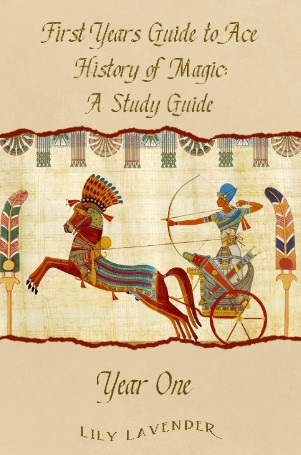First Years Guide to Ace History of Magic: A Study Guide
By Lily Lavender
This book is intended for all who need a quick study reference guide for HOM-101. It has a glossary of terms & its appropriate meanings for the entire course. Each chapter is based on a lesson; where it won't go into grave detail, but will give you the necessary components to study for upcoming tests & assignments. This does not include mid-term & final exams. All detailed information about each topic is in your official lessons with the Professor. DO NOT COPY AS IT IS PLAGIARISM!
Last Updated
May 31, 2021
Chapters
10
Reads
3689
Lesson Seven Study Guide
Chapter 8
The Bell-Beaker culture is fully magic. They inhabited the European Stone & Bronze Age which started 1.4 million years ago & concluded in 1800 BCE. They had curious writing, pottery, & weird structures made of stone. This culture progressed from symbols to written text & the symbols were for wand motions, messages, & words. Stonehenge was created in 3000 BCE & has astronomical magic. This structure helps fertility & the birth of a child. It was also used to increase stamina in warriors by potions & spells.
Magical people thought that The Hag & the misfortune of DeBolbec was the origin story of the Stonehenge. The story suggests that, in a rage, Cedany magically encircled the land with stones & turned Josselyn into stone as well. Cedany noticed her error & fled. When Gerbert DeBolbec saw his wife in stone, he demolished the hags house. He didn't know what stone his wife was trapped in, so he put a spell on the stones to be put in a package to look for the hag. When Gerbert found out some stones were missing, he got angry. Once he found Cedany, he put a spell on her & the spell killed her. European churches banned magic, as well as explanations in forms of science. Christianity reached across Europe & due to this, witches & wizards left to live farther away. The International Statute of Secrecy was then created.



